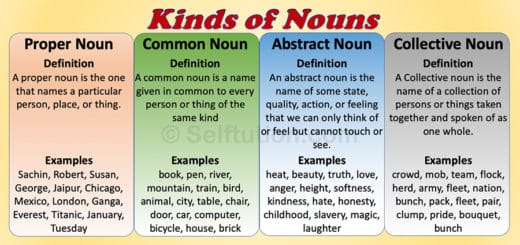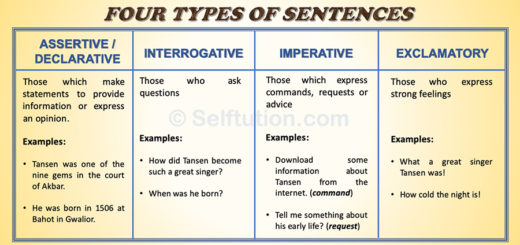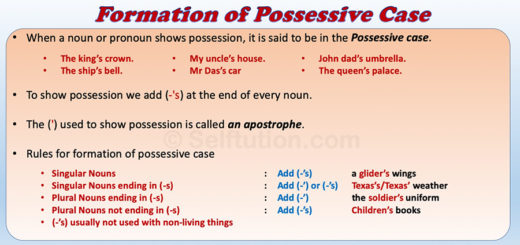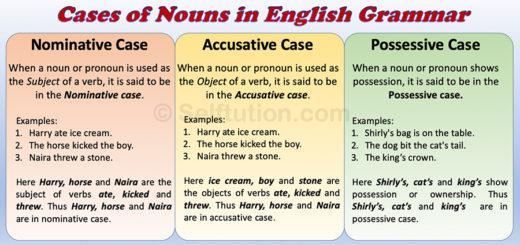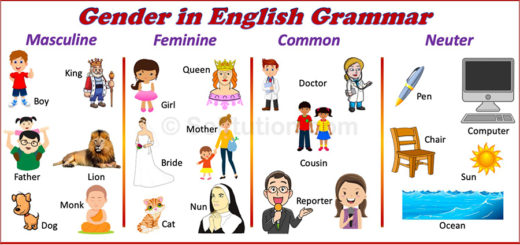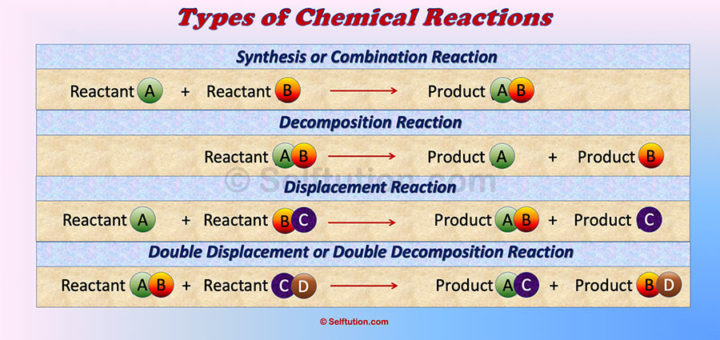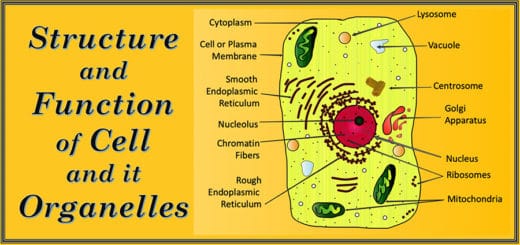Gender in English – Masculine, Feminine, Common & Neuter
The word ‘gender’ in English grammar has been derived from the Latin ‘genus‘ which means ‘kind’ or ‘sort’. Therefore, in English grammar, we use gender as a noun that denotes either the male or female sex.
English grammar has four types of gender – masculine, feminine, common, and neuter.
Gender in English
Masculine Gender
A noun that denotes a male is said to be of the masculine gender.
Examples of masculine gender are – boy, man, brother, father, dog, nephew, uncle, king, lion, hero, husband, son, monk, etc.
Feminine Gender
A noun that denotes a female is said to be of the feminine gender.
Examples of feminine gender in English grammar are – girl, woman, sister, mother, bitch, niece, aunt, queen, lioness, heroin, wife, daughter, nun, etc.
Common Gender
A noun that can denote both a male and a female is said to be of the Common gender.
Examples of common gender are – baby, doctor, player, neighbor, friend, parent, anchor, pupil, teacher, cousin, reporter, etc.
Neuter Gender
A noun that denotes a non-living thing is said to be of the neuter gender.
The word ‘neuter’ means ‘neither’, which is neither male nor female. Examples of neuter gender in English grammar are – pen, laptop, book, spectacles, chairs, school, bench, room, etc.
RULES FOR FORMATION AND USAGE OF GENDER IN ENGLISH GRAMMAR
Mostly in English grammar, we use entirely different words for nouns with a different gender. However, we apply certain rules while changing masculine to feminine nouns. There are four ways of forming the feminine of nouns.
Rule:1 By adding ‘-ess’ to the masculine noun
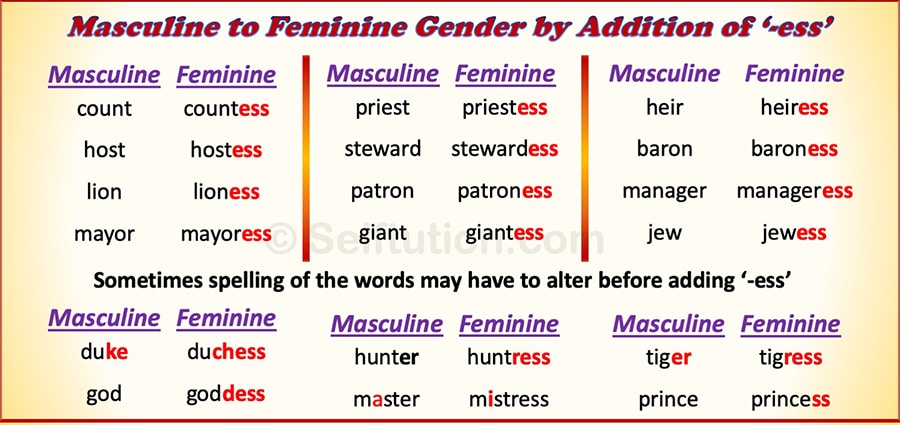
Examples of masculine to feminine gender in English grammar by addition of ‘-ess’
Rule:2 By using an entirely different word for a feminine noun
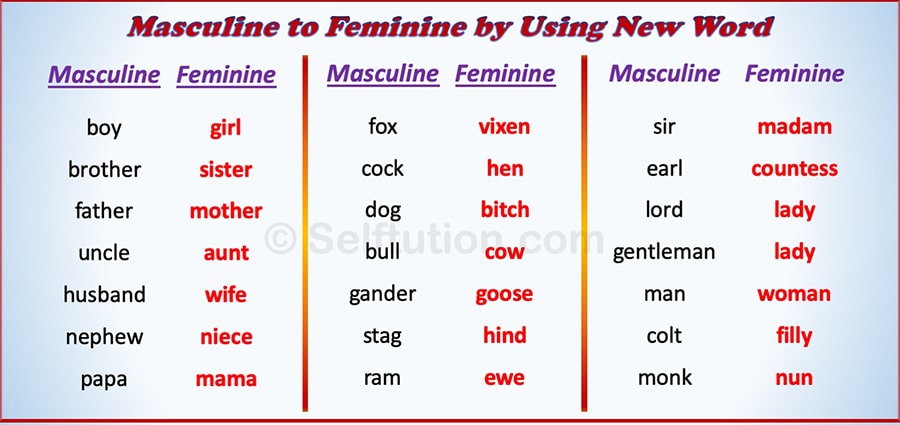
Examples of masculine to feminine gender in English grammar by using a new word
Rule:3 By replacing the main noun in a compound word
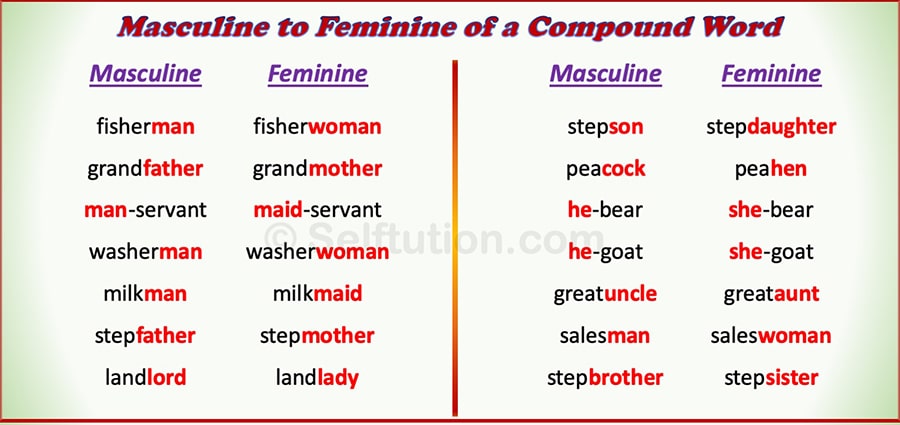
Examples of masculine to feminine gender in English grammar for a compound word
Rule:4 By addition or replacement of letters at the end of a masculine noun
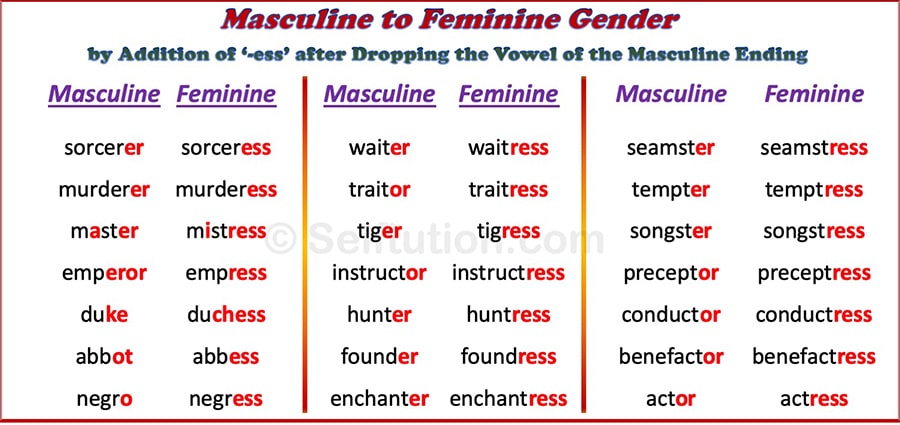
Examples of masculine to feminine Gender in English Grammar
A PERSONIFICATION OF NOUNS OF NEUTER GENDER
We often personify some objects without life and speak of them as if they were living beings. In other words, we regard them as males or females.
We often apply masculine gender to the neuter nouns which exhibit remarkable force, power, strength, and violence. For example – the Sun, Summer, Winter, Ocean, Time, Death, War, Thunder, Wave, Storm, etc.
Sentence examples of neuter nouns with masculine gender-
- Ocean returns to engulf the ship of fools. It seems he has decided to kill them all.
- Death lays his icy hand on the king.
- The Sun is scorching. It’s difficult to face him without an umbrella.
On the contrary, we apply a feminine gender to the neuter nouns which exhibit beauty, gentleness, grace, fertility, prettiness, and inferiority. For example – Earth, Moon, Spring, Hope, Virtue, Truth, Justice, Pride, Mercy, Charity, Peace, Humility, Jealousy, Fame, Modesty, Liberty, Flattery, etc.
Sentence examples of neuter nouns with feminine gender-
- The moon shed her light on rich and poor alike.
- The earth is our mother. She takes care of us.
- Liberty is what we all love to have. But she is evading many.
- Spring has spread her mantle of green over the earth.
You may also like…... Types of Chemical Reactions in Chemistry

